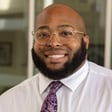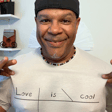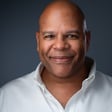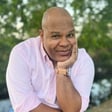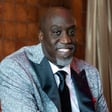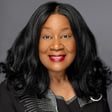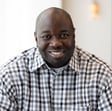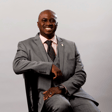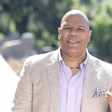The Reality of Greek Life
00:00:00
Speaker
You gotta admit, Greek life can look pretty, pretty cool. And there are a lot of people who make it look way cooler than it is sometimes. Well, maybe not present company, but there are a lot of folks who look really good in their letters, however, they wear their letters. They look good at the parties. They look good at the games. They look good when they are just simply hanging out on campus. But you know, there is no such thing as perfection in Greek life. As a matter of fact, ask Sarah Colazzo in college. She was trending towards being an it girl on the college dance team.
00:00:36
Speaker
president of her Zeta Tau Alpha chapter, she felt a lot of pressure. But she decided at one point that rather than being a superwoman for everyone else, she wanted to be her own hero. Suffering from an eating disorder, she actively worked on her own recovery while encouraging others to do
Introducing Ethocast and Guest Sarah Colazzo
00:00:55
Speaker
the same. Let's meet Sarah on episode, fittingly, Zeta of Ethocast.
00:01:03
Speaker
Welcome to Ethocast, a podcast about sound leadership practices to boost life in college fraternities and sororities. I'm Eddie Francis, presenter of Followership to Leadership and the Black Greek Success Program, presentations designed to help Greeks become more effective leaders. On Ethocast, I'll share lessons learned from my college days, my career journey, and leadership research. Ethocast is a four-hour edification limited series and presented by Edify Adventures. This is Ethocast, leadership to the letter.
00:01:37
Speaker
Thank you so much for joining me on Ethocast, and joining me is one of my good colleagues from Greek University, Sarah Colazzo.
Sarah Colazzo's Journey into Greek Life
00:01:47
Speaker
You know, I don't know if you know this about Sarah, but she's like she's like a serious traveler. You know, I look at her IG, she's off somewhere, she's a back somewhere, then she's off somewhere again, you know, because she's just fabulous. She's one of these fabulous types of people. Sarah, how are you? I'm doing good. How are you doing? Thanks for having me. Oh, it's good to have you. um So one of the things you're you're going to find, you know, talking to my good folks here who who check out Ethocast, one of the things you're going to find, I'm definitely going to put a few of my Greek university colleagues on Ethocast because, first of all, the obvious reason is a Greek life podcast, Greek university. But then also when I got a chance to meet Sarah and some of the other colleagues, I told everybody after I heard their stories, I'm like, OK,
00:02:36
Speaker
I'm going to try to get every single one of you on a podcast that I'm doing because everybody just had these really, really interesting stories. And we're going to get to Sarah's story in just a little bit. But Sarah, a first things first, ah you are an
Overcoming Internal Struggles
00:02:51
Speaker
alumna of ah Rhode Island, right? Yep. Go Rhode University, Rhode Island, 2021. OK. Yes. Yeah, very cool. And then ah you are a member of Zeta Tau Alpha, correct? Yep. Zeta Tau Alpha, yep. What got you interested in Greek life in the first place? I didn't really know if Greek life was for me when I was going into college. I never was against it and I was never like, oh my God, I can't wait to join. So Rush happened at the beginning of
00:03:25
Speaker
right at the beginning of the semester, probably like the second week. And I was like, you know, I'm just going to try it and see what happens. And I always, everybody always said, you know, finding your sororities, like putting on your wedding dress, like you just know. And I walked into all the houses and I was like, wait, I like all of them. Like everybody's really cool. So I struggled during recruitment because I was like, I don't know where I'm supposed to end up. I don't know where do I go? And then every time I went to Zeta, I just wanted to I was the best version of myself when I walked into that house. It was organic and it was natural. and I joined kind of just thinking that I was going to be um you know along for the ride.
Addressing Eating Disorders
00:04:02
Speaker
I would go to all the events, but I didn't really think that I would have um you know any position of power. and Obviously, looking back on it five years later, that was not the case. um and It was honestly a decision that I didn't realize I was making at the time, but it was hands down the best decision I ever made.
00:04:18
Speaker
What do you mean when you said you were the best version of yourself? What what does that even look like for you? I and just noticed that I was not like I snort when I laugh and like I didn't care that I was snorting while I was laughing. I was like I'm so happy one that I'm laughing this hard and and two that I'm not afraid to be me. I was confident when I was talking about you know, what I was doing in high school and my friends and all that, like, I just had really great conversations. And I was just so in the moment, I wasn't overthinking anything. And I was just really present. And that was something that I struggled with at the time. So I was just a happy, bubbly person. And none of it was fake, which was really cool, because I felt like I was, you know, going into college was like, all right, who am I going to be? How am I going to act? What am I going to do? And I was like, cool, this is who I am. And they kind of really helped me figure that out without even doing it on purpose.
00:05:10
Speaker
yeah I was going to ask you so you, and your sisters, you felt like they were right there with you? Yeah. I had a bunch of different girls talk to me during recruitment, and the thing that I liked about them was everybody was so different, but they all had like a very similar spark in their eye. like everybody had Everybody came from all different walks of life, all different passions, all different stories, but they all had just like this genuine goodness about them, which was really cool. And I was like, yep, those girls, they're mine. Was there a particular reason that you selected at Rhode Island? I flipped a coin and I'm not even kidding. So it was between Rhode Island and who else? University of Delaware. I was Rhode Island was the, I'm from New Jersey. It was the farthest school that I applied to. yeah And I was very nervous to leave home and I was sitting with my mom and she gave me a coin and she said,
00:05:59
Speaker
Heads is Rhode Island. Tails is University of Delaware. Flip the coin. And before I looked at it, she said, what do you hope it lands on? And I said, I hope it lands on Rhode Island. And she said, OK, you're going to Rhode Island. I never saw what it landed on because there's a theory that when you flip a coin, you know what you want it to land on. You just need somebody to validate you. You need the universe to push you in that direction. So she's like, you want to go to Rhode Island? You're going. And I went. Okay. So not seeing now I'm going to be sitting around tonight flipping coins just to see what happens. I flip coins for me. I mean, I picked like Mike, I make flip by coins for everything and like major decisions and it works like nine times that I've tried it on like what it works on everybody except one person. I was like, what do you hope it lands on? They were like, I don't know. That's why I flipped the coin. I was like, you're not doing it right.
Communicating Struggles and Encouraging Openness
00:06:47
Speaker
So yeah, flip the coin.
00:06:50
Speaker
Like you ruined you ruined the coin mojo we can't do this like landed on tails have funny you don't like whatever so yeah but So of the things that I found really interesting um about you is is um how you deal with the topic of eating disorders. But in your bio, it says that you used to wear, quote, smaller jeans and quote, a fake smile. So why was that? And have any of um any of the members who that maybe, you know, you you hung out with or maybe women from other sororities, did you see similarities or did anyone or has anyone ever told you, you know, when you talk to them about this, that they identify with you?
00:07:37
Speaker
A lot of people that I've talked to, I am very I'm proud of myself for the progress that I've made, but I'm very proud for how I'm able to articulate it because I feel like I'm able to put words to a lot of people's emotions that they don't necessarily know how to put into words. So, or things that they're feeling because I was there and because I am to a similar age of people in college still, I'm like, I know what you're doing behind closed doors. And I know that when you are, you know, puke and rallying, I know what you're doing. It's not because you drank too much. And I know that you're not eating all day because it's not because you want to get drunk faster. It's because you want to, you know, skip a meal because your friend is getting like, I know all the tricks that they do. And I know all of the um how eating disorder behaviors are so normalized on college campuses that I'm kind of able to like throw it back in their faces and be like, I know what you're doing. And that really stops people dead in their tracks a lot. um
00:08:37
Speaker
And I just, I felt that I needed to be a certain way and I know that a lot of, um Everybody, not just females on college campuses, males, all genders, feel a need to fit in, to look a certain way. And the more that I share my story, the more people come up to me and they're like, I really needed to hear that. um Whether it's relating to my story directly or it's them um you know taking something and replying it to their own life. A lot of people are feeling that who they are isn't good enough and that
00:09:08
Speaker
what they look like is the most interesting thing about them, when in fact it's the least interesting thing about them. And that's something that I say probably 80 times a day, what you look like is the least interesting thing about you. oh you know You know, that's actually kind of bad on me because I said women, but I should have said people because men go through this too. So how many young men have said, okay, I i didn't, I don't know how to talk about this or how many have said, I'm so glad you said this because now I feel like I can deal with it. I almost have more powerful conversations with the younger men than I do with the women because it's often the first time that they've ever vocalized this. Maybe it's the first time that somebody is able, like they feel comfortable to sit down with somebody and say, this is what I'm going through. Because even if they have a great group of friends in their fraternity, sometimes if a if their friend has never been in that position with themselves, they might not know how to respond.
00:10:04
Speaker
So they have a soundboard, but they don't really have anybody saying something back to them. So it's really nice being able to take what I've been through and give them that safe space and allow them to vent, cry, scream, whatever they need, um because it's way more prevalent on college campuses than I think anybody realizes. So I want to backtrack a little bit. So you mentioned that you felt like you were the best version of yourself when you met the Zeta women. And then you went through this phase where you um where you really, really decide to go face, you know, ah ah come face to face with your eating disorder.
00:10:40
Speaker
So how was the timeline on that? Did you develop ah an eating disorder or did you have one and you felt like maybe you could confront it a little bit better um as you became a member of your sorority? I didn't know that I had an eating disorder. So looking back on it, I had one probably my junior year of high school and it stuck with me throughout. And I didn't realize I was never that person that I never thought I was sick and enough. There's such a large spectrum of eating disorders that the media only portrays a small piece of that I was like, I'm not skinny enough to have anorexia. I'm not purging enough to have bulimia. i you know Everybody goes on diets. Nobody really seems concerned. In fact, everybody's telling me how great I look. I'm fine. I never realized how severe my negative body image, my body dysmorphia, and my eating disorder tendencies were. Probably I was also on the dance team um
00:11:38
Speaker
at college i was on the u r i remettes so i just became this like superwoman person and played this persona of chapter president dance team has a job has an internship and i was just trying i was wearing this mask for so long that i kind of forgot who i was and that's not to say that i was speaking cuz i loved being on the dance team i loved my sorority i loved everything i was doing but i was just so surface level and i didn't let myself enjoy any of the moments and I would go home at night and just
Shared Struggles and Growth in Greek Life
00:12:10
Speaker
be miserable with myself and no gene size or award could fill the void that I was looking for and it wasn't until I entered recovery that I was able to find that genuine happiness and I started sharing my story and I became a better sister that way, I became a better member of the dance team that way, I became a better person because I was sharing my story, helping other people and just really becoming who I was supposed to be.
00:12:35
Speaker
Now, where on the spectrum of eating disorders were you? I suffered with anorexia more. in my younger years, I would say junior year to sophomore year. And then sophomore year was when the bulimia started. um Because when you, it's kind of like, I like to think of it as like, I was bouncing back and forth. Like I stopped restricting and I started eating and that scared me. So I wanted to get rid of it. So then I would purge. And then when I didn't want to purge anymore, then I would go back to the restricting side. So I'm like kind of in a limbo. I'm, you know, I have a great team of people that helped me in my recovery. um
00:13:15
Speaker
Professionals um with therapy um that i'm in a relatively stable place right now but i bounced back and forth for for a hot minute there and it was um it's a very isolating journey so yeah to be able to um talk about it is really scary because I didn't know if anybody would say you're crazy, you're the only one that's going through that. the views expressed on ethel cast do not necessarily reflect the views of the host guests or any entities with which this podcast's participants are affiliated questions comments
00:13:49
Speaker
email eddie at eddiefranncis dot You're listening to Ethocast. I'm Eddie Francis and we're talking to Sarah Colazzo and she is one of my colleagues with Greek University. um And, you know, as I was listening to your story, it reminded me somewhat of my story in a way because um I joined my fraternity and I just remember that I went through this massive identity shift. I was unhappy about you know where I was. you know And then on top of all of that, i felt like I felt like a failure at a lot of things because I just didn't do things I thought right enough. And so I wasn't the i wasn't the chapter president that I wanted to be. you know And I was a chapter president twice. And so I wasn't the chapter president that I wanted to be. And then my grades started to take a nosedive.
00:14:43
Speaker
And then on top of that i start to get worried about well what am i gonna do after college i started to get become afraid of that and then i was just frustrated just period because i don't wanna be in new Orleans and so it was all of these things happening all at the same time with me but i'm always very careful to tell people. Because you know how, you know, you have those people who say, oh, yeah, yeah, people change so much when they go Greek. And I'm going, yeah, but Alpha wasn't the reason I changed. um What really I think happened was I think because of where I was, I started to I started to in my own way come face to face with things that were frustrating me that I didn't want to face. Yep. Yep.
00:15:27
Speaker
And so, and so I just started going through this massive transition and I didn't know how to handle it. You, you wisely were able, you, you got help and all stuff. I didn't get help. So I just struggled my way through college. I clawed my way to the end to the line graduate. Yeah, man. So, so um, were your sisters supportive of you?
00:15:52
Speaker
had a very I was very lucky because everybody um everybody in Zeta and a lot of the Greek community not only accepted it, but like they were very empowering. and I don't know if it was because um you know nobody else was really talking about it and because I was in such a high position at URI that They were like wow, that's kind of cool that she's talking about this and that you know is Maybe that'll give me the chance to talk about it um But it really helps the sisterhood of my chapter and I hope that it helps of those of other chapters um Because whether it was struggling with eating disorders or not It was just you know I'm going through this and I always made sure to tell people that even if it's not even sort of you can talk about whatever it is that you're going through if it's alcoholism
00:16:40
Speaker
Russian, if any whatever it is. and It just really made taboo topics not so scary to talk about.
Discussing Imperfections in Greek Life
00:16:50
Speaker
I was just really, really lucky that everybody was so um supportive. Obviously, there were some people that you know had their comments to say and a lot of you know some frat boys didn't always understand, some fraternity members. by it wound up being really great because, you know, people that had a lot to say about it, we wound up connecting later years on. And like, I got to say my piece to them, they said their piece to me. And we were like, we were kids that didn't understand it. We were handling something that was way bigger than all of us. And it was a big learning curve for everybody. It like solidified why I was doing what I was doing. And it was a really great learning experience for them. I'm like, wow, why did I think that? Why did I whatever? So it was, it wasn't all rainbows and butterflies, but it was, um I would go back and do it any day.
00:17:33
Speaker
Yeah. ha How about that? Greeks are human, too. ha You know what? So is that something because and and I say that I say that kind of tongue in cheek. But I do think that when you become a member of a fraternity or sorority, that there are people who are not members who they look at it and they start to feel like there might be a little bit of perfectionism going on there for the people who are members. And then when we do do human things, people are like, Oh, look at him. Well, I thought, I thought all alphas were smart. I'm just like, I mean, yeah, I just made a mistake though. You know? And so yeah do you encourage people to talk about their insecurities, to talk about their disorders, to talk about whatever it is that's really keeping them off kilter and to not be afraid of the judgment that might come along with it?
00:18:31
Speaker
Yeah and ah I think you hit it on the head like we're all we're all humans and we're held to a high standard but I think that we also hold ourselves to a high standard and that's why we joined Greek life because we weren't necessarily afraid of that like we knew what we were capable of and you have that kind of self-confidence and you surround yourself with people that are gonna you know Lift you up and when you do mess up you got your people that are gonna be there to you know help you through it because we're all gonna do it and I think that it's just really I think to build good friendships and build relationships you need to be able to forgive yourself you need to be able to be yourself and
00:19:11
Speaker
You don't have to love every single aspect of every single person on your college campus but it just really builds a layer of respect when you're able to know hey this is what this person is going through like some. member may just be really aggressive towards people and you have no idea that it's because so she's not taking her medication and she's whatever she's going through a really hard time at home and like not that that's an excuse to be mean to people but it's a lot it just builds for a lot more understanding within your organization when you know what people are going through and what's going on behind closed doors um
00:19:47
Speaker
because, I mean, there were 200 girls in my chapter. There was so much going on that it was easy to hide what was going on in my life. And once I started letting people in and showing them that and not being afraid, it was a really um freeing moment.
Leadership and Authenticity During Crisis
00:20:00
Speaker
Inquiring minds want to know, what is it like to be a chapter president with 200 members? It was. I mean, listen, I had like 10. It is. So my presidency, I was Sunshine Chair freshman year, VP, one of programming and then president.
00:20:20
Speaker
So i had um I was president through half of COVID, through the Black Lives Matter movement. And um the reason why I became president was because um my chapter president passed away. And I was her vice president and I was elected, um not directly after I didn't take over, I was elected for the term afterwards. And I didn't think I could ever be president. And I literally said, while I was going through recruitment, you know, I don't ever i don't see myself as a leader, like I'll never be president, but I could be something small.
00:20:54
Speaker
And I became president two, three years later. So I had to handle a lot of real world issues. And I think if you talk to some chapter presidents, they're going to have a very different perspective than I do because my, um, the things that I was dealing with were not, you know, planning formal, raising money for philanthropy week, doing things that, you know, chapter presidents are expected to do. We were not on campus. I had to handle people with COVID. and We had all of these things. Everybody was across the country because nobody was on campus. So my experience was um a lot. It was something that I'm very proud of, and it definitely made me who I am today. But it was a very exhausting and trying time. It was very rewarding, but it was um
00:21:48
Speaker
200 girls having to worry about it all times was something that I don't know if I could do right now. 55 girls living in the house. That's a lot of girls under one roof. so that is That is a lot of people under... Wow. Okay. All right. so so um obviously dedicated to Zeta and you were in this process of becoming authentically you. How did you balance those two things?
00:22:21
Speaker
I gave myself a lot of grace. I tried to give myself some me time. I graduated college with a 3.96 GPA and looking back on it, I was like, you know was it really worth crying over getting an A minus instead of an A? like I tried to, I'm very much a perfectionist so and I tried to let go of that as much as I could. And it took a little bit of time that I'm in a much better place with it now, but I just gave myself a lot of grace and let myself be me and kind of took my mask off, took my cape off at the end of the day and was like, you know this is who I am. this is why I wasn't elected president because of what I look like. I'm not on the dance team because I'm of my size jeans. I'm on the dance team because of how I perform. I'm president because of my heart and because of my brain. And I really took that and kind of ran with it.
00:23:13
Speaker
and tried to balance being a leader, being a student, but also being as a person and letting myself know that you know being Sarah was just as important as being a leader on campus. You're listening to Ethocast. I'm Eddie Francis, along with Sarah Colazzo.
Reflecting on Personal Growth and Leadership
00:23:30
Speaker
And we are talking about Sarah's journey to becoming authentically who she is and and and how she did that through college and how she's talking about it now to students. and so um
00:23:44
Speaker
You said you didn't necessarily see yourself as someone who could be in a leadership role like a presidency. How did you make that transition from someone who didn't see yourself there to actually doing the job? I, a quote that's been very prominent in my young adult years was first you become a part of it and then it becomes a part of you. And it could be something as small as, you know, a group project where I'm like, wait, what do you mean the semester's over? And we don't like don't get to talk all the time now. Like I am very much I'm very much an empath. I love, you know,
00:24:21
Speaker
people and being connected to things. And when I joined Zeta, you know, I thought it was just, you know, an organization of sorority. We're going to do some good in the world. We're going to have some fun. I'm going to make some friends. And then um I was brought as a um future leader to our national conference or national convention um at the end of my freshman year. And I was like, I love this. This is great. And I Olivia Dixon was president when I was a freshman and she was an incredible leader and person and role model. And then Dominique Franco, my dear friend, um she um was my president. I was lucky enough to be her vice president. She you know really encouraged me to run for
00:25:03
Speaker
Um, executive council that first year to become VP when I didn't think I could do it. And then, um, after she passed, I was like, you know, she, I want to make her proud. And we had a lot of plans on what we wanted to do together. So I said, I'm going to finish what she started. And she loved Zeta and she loved our philanthropy. And she was going to school to be a nurse and just wanted to change the world. And I was like, I'm. Gonna make sure her legacy leaves lives lives on um and that was she really helped me and motivate me into becoming a leader and um Yeah, I I wouldn't be where I am now without her hmm of all the topics that you talk to um Audiences about is there one that you just could talk to him all day long about it and
00:25:52
Speaker
i'm I'm not going to ask you what's your favorite, because that's always an unfair question. I know. I'm thinking I'm like, oh my god. like I talk about everything for hours and hours and hours. um i
00:26:03
Speaker
I'm going to try it on you. My favorite thing that I've ever said to somebody, what's your favorite type of music? Oh, for me, oh man, that's so crazy. We're your favorite artist. Hip hop? Yeah, hip hop was my favorite. I don't like hip hop. OK. Does that change the way that you feel about hip hop? Nah. Is there anything that I could really say or do to make you think that, you know, you shouldn't like hip hop music? No, not really. Not much. So how come when somebody says they would like you more if you had a different body, you're so easy to change your mind? How come when somebody says, you know, I'd like you better if you were blonde, you'd be prettier if you were skinnier, you know,
00:26:48
Speaker
if your skin was whatever, we're so much easier
Identity Changes and Authenticity in College
00:26:51
Speaker
to believe it. But when it comes to something else, we're so easy to stand our ground. And when somebody criticizes it, it almost makes us more confident in it. That's my favorite thing to tell. That look, people that look in their eye of people and they're like, she got me. That is pretty, many that that that's kind of mind bending. Uh-huh, that's my favorite my favorite thing. And then wherever it goes from there, but that's my favorite. favorite thing to say to people because it really, their mind goes from their favorite music to their hair color and their eye color yeah and all the things that they never think about. And they're like, I wouldn't change anything about myself. So what do I really want to change? I want my stomach to be a size eight instead of a size 10. Okay. Is that really that big of a deal? Like it just, it blows your mind, which is really fun. So, so that brings up an interesting question.
00:27:39
Speaker
When people do, and this happens a lot in Greek life, I don't care what kind of fraternities we're already in. A lot of people have what we call a glow up, right? they they'll They'll get in and they'll they'll change their looks. and And so what about those people? Because sometimes those people get really, really criticized um for for wanting to change the way that they do their hair. They want to change the way that they ah that they they dress and the way even the way that they carry themselves. And people who are outside of Greek life can become very critical of that. so
00:28:13
Speaker
What is that fine line between someone who is doing it for someone else and they're doing it for themselves? What have you seen? I think the difference is is that it's not I think everybody thinks it's a fine line and I don't think it is I think it's a spectrum and I think it's a gray area and I think that. Also you enter college when you're 18, you leave when you're 22. That's a big, like you physically change a lot. You mature a lot. A lot of times it's people's first time away from home. If you had uniforms in high school and now you're in college, you're going to try out a bunch of different things and see what you like and see whatever. So I think some of it is one very natural and very organic. And another part of it is,
00:28:58
Speaker
It's okay to want like, I cut my hair because Olivia Benson, my favorite actress, Mariska Harichaje cut her hair. That's what I'm saying that I am not confident in myself or because I want to be something that I'm not. It's just when I think when it goes into a deeper level of I'm not good enough as I am. it's It's one thing to be like, hey, I'm going to try wearing different colors to see how I feel. Or, you know, everybody in my chapter all has the same pair of ripped jeans and I really like the way they look on them. I want to get a pair of ripped jeans. It's when it's I can't wear what I want to wear because they're better and because I will be accepted if I don't. I think that when it's more personal, that's when it's something that we need to look into. But if it's, you know,
00:29:47
Speaker
like trends are a thing and trends are natural and I don't think that you know fashion trends or beauty trends are necessarily a horrible thing. It's just a matter of when you start to turn on yourself and lose who you are.
Advice for Greeks with Disorders or Disabilities
00:30:03
Speaker
Yeah. I don't think buying, ah you know, everybody's wearing flannels. I want to wear a flannel. That's fine. But if it's, you know, I'm, I'm not going to feed myself or I'm going to stop talking to this person because they're not cool. That's when it becomes a greater, a greater issue. Yeah. Yeah. So one, one last question. Um,
00:30:23
Speaker
What are some of the thoughts that you have, uh, for, uh, for folks who are members of fraternities and sororities who are struggling with disorders or who are struggling with hidden disabilities? What are some of the thoughts that you have for them so that they can be themselves and at the same time out of the mission, the goals, the values of their fraternities and sororities, and then still feel as if they're doing okay at the end of the day? My best day with an eating disorder does not even compare to my hardest day in recovery. And that says a lot because my hard days in recovery are hard, but I would still rather be going through that than have a good day with an eating disorder. And that goes for everything, depression, anxiety, any other kind of thing that something might somebody else might be going through. it
00:31:22
Speaker
There is no such thing as sick enough. And if you you know yourself better than anybody, you are the only one that has to be with you 24-7, you look at yourself in the mirror, you need to be your biggest advocate. You need to be your best friend. You gotta give yourself some grace along the way. You are a student, you are making sure your room is clean, you need to make sure you have food. like you Being human is really hard. like It's so normalized that like, hey, I'm just going to clean my house and do laundry and go grocery shopping and do all this, go to work and have a social life. Like that takes a lot of energy. And I just, I think celebrating the little wins is so important, especially when you're in college, because everybody's worried about the finals and the big events that it's like, no, let's just focus on one day at a time. You got to find little joys in every day. There's, if you're not happy with
00:32:17
Speaker
who you are, then that's enough in my book for deserving of some kind of help, whether that's therapy, whether that's medication, whether that's whatever. If you know you're listening to Eddie's podcast and he ever says something that is hits a little too close to home, go to a trusted professional. like It is so cool that somebody is dedicating their entire life to help people just like you. like Therapy is a badge of honor. I love therapy. I had three therapists in college. I loved it at the same time. like yeah it was It's, you know, what you look like is the least interesting thing about you. Who you are is enough and your friends love you for who you are, not because of what you do or what you look like. And, you know, just give yourself some grace along the way. And younger you, no matter where you are right now, younger, you would be very proud of where you are. So that is good stuff. So if anybody wanted to reach out to you, how can they get in contact with you?
00:33:07
Speaker
They can reach out to me through Instagram. My Instagram is sar.kala, S-A-R dot C-A-L-L-A. I tried to be cheeky and short in my last name, like, already. Also on the Greek University page, you can also find Eddie and all of our super cool friends, greekuniversity.com, all of our um Talks that we do um our whole team is up there our bio everything that we do um You know, we're all gonna save the world one day. So might as well be a part of it now you knew whats fun All of Sarah's contact information is in the show notes as Sarah. Thank you so much for joining me on etho cast. I enjoyed this Thank you so much for having me gonna do it again sometime
00:33:49
Speaker
Ethocast is a four-hour edification limited series. If you like what you heard, like and follow this podcast for more leadership insights for your fraternity or sorority chapter. To find out how you can bring followership to leadership or the Black Greek Success Program to your campus or a campus near you, email today, eddy at eddyfrances.com. Until next time, spread brotherly and sisterly love wherever you go.

